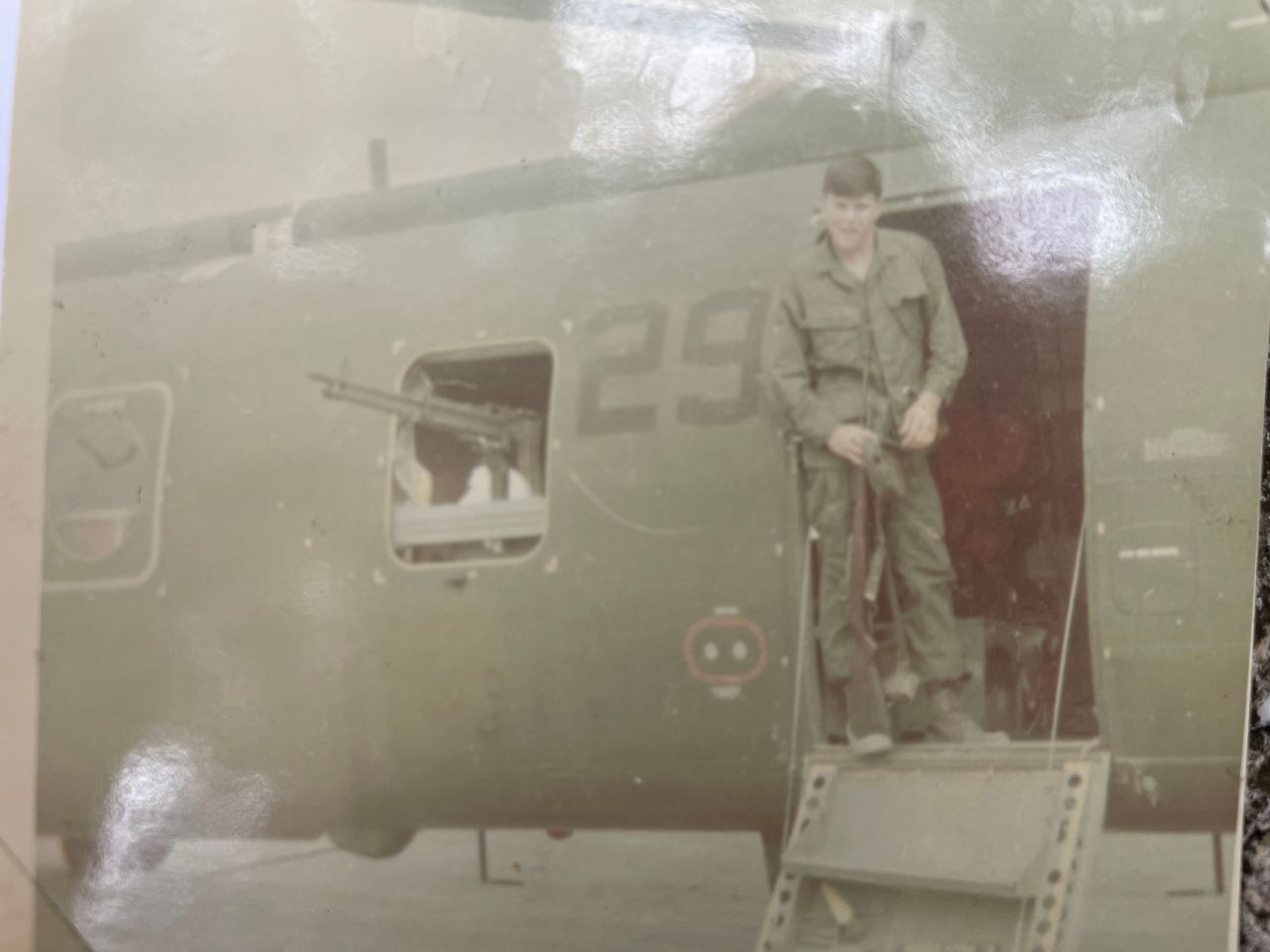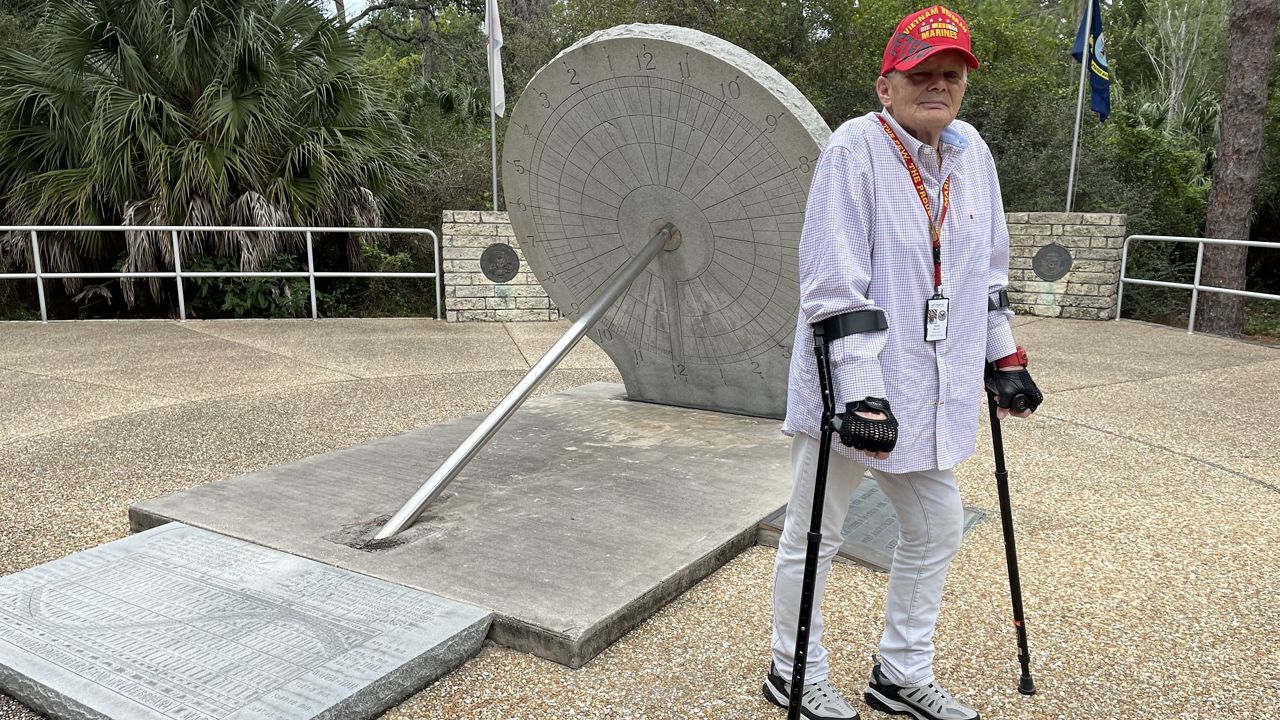PINELLAS COUNTY, Fla. — According to the U.S. Dept. of Veterans Affairs, its Veterans Health Administration is the largest integrated health care network in the country. It includes 1,255 health facilities serving nine million veterans every year. One of them is David Miller, a resident of Largo.
What You Need To Know
- Veterans Health Administration is the largest integrated health care network in U.S.
- VA includes 1,255 health facilities
- The health administration serves nine million veterans every year
- This summer, more than 100 groups raised concerns about development of new VA standards
"I really didn't want anything to do with the VA because up north, when we went there, they didn't want to help us back then," said Miller, a Marine Corps veteran who served in Vietnam from 1967-1968. "Down here was a different story back then. That was in the 90s. I went over and I signed up and started going to the Bay Pines VA, and you know, I had excellent treatment."
-1)
Miller joined the Marines just two months out of high school at age 17. He was wounded in combat by shrapnel but said the major impacts he still experiences are related to Agent Orange exposure. Miller battled cancer in the early 2000s and suffers from peripheral neuropathy, as well as spine and nerve damage. He uses walkers and a wheelchair to get around. Physical ailments aren't the only treatment he sought at the VA.
)
"I was in a mental health program for PTSD, too. That was another thing I suffered a lot from when I was younger," Miller said. "I had issues keeping jobs. I'd go from job to job and disappear in the woods. I mean, it was rough for us when we were younger."
-1)
On a national level, the president of the American Medical Association, Dr. Gerald Harmon, told Spectrum News the VA has made extra efforts in recent years to reach out and be more effective and efficient.
"As a recipient of VA health care, I'm a veteran, my son's a veteran, my father was a veteran, veterans health care in the United States is very personal to me," said Harmon, who served in the Air Force Reserve on active duty, as well as in the Air National Guard.
Harmon said community-based care that allows veterans to seek treatment from providers outside the VA network if needed is one of the positives.
The AMA was one of more than 100 organizations that wrote a letter to the VA this summer to express concerns about its Supremacy Project. According to the letter, it involves the development of National Standards of Practice for providers that would "supersede state scope of practice and licensure laws."
"The policies the VA is seeking to overhaul will have implications for standards of care beyond the VA. It is therefore vitally important that the VA initiate a meaningful process for the collection, dissemination, and inclusion of stakeholder input as early into the process as possible," the letter reads.
The letter also asks the VA to reconsider implementation of the standards. Harmon said while there have been meetings between the VA and some of the concerned groups, they haven't been involved with collaborating on those standards.
"We really want to make sure that in the interest of expediency and efficiency we don't sacrifice quality. That's our challenge right now. The way to do that, I think, is to have stakeholder involvement, physician-led stakeholder involvement, to make sure all members of the health care team are operating within the scope of practice and appropriately so with accountability," said Harmon.
As for future challenges, Harmon said the shortage of medical professionals being seen nationwide is on the AMA's radar when it comes to veteran care. Miller also noted lack of physicians could be a challenge moving forward.
"I think the VA all around the country needs more doctors — the VA here, everyone," said Miller.
Miller is doing his part at home. He's the National American Legion Hospital Representative for Bay Pines, where he's also been a volunteer for decades.
"I help veterans with any issues they have. Our younger veterans, we help a lot because the Vietnam veterans made a pact. We are never going to let another generation of veterans go through what they did to us. We want to make sure that veterans get help," Miller said, still serving, more than 50 years later.




